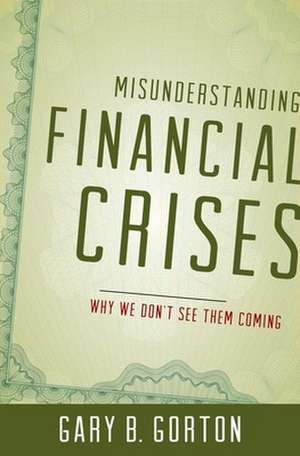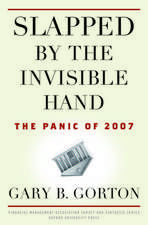Misunderstanding Financial Crises: Why We Don't See Them Coming
Autor Gary B. Gortonen Limba Engleză Hardback – 27 dec 2012
Preț: 199.49 lei
Nou
Puncte Express: 299
Preț estimativ în valută:
38.18€ • 39.71$ • 31.52£
38.18€ • 39.71$ • 31.52£
Carte disponibilă
Livrare economică 24 martie-07 aprilie
Preluare comenzi: 021 569.72.76
Specificații
ISBN-13: 9780199922901
ISBN-10: 019992290X
Pagini: 296
Dimensiuni: 157 x 236 x 23 mm
Greutate: 0.57 kg
Editura: Oxford University Press
Colecția OUP USA
Locul publicării:New York, United States
ISBN-10: 019992290X
Pagini: 296
Dimensiuni: 157 x 236 x 23 mm
Greutate: 0.57 kg
Editura: Oxford University Press
Colecția OUP USA
Locul publicării:New York, United States
Recenzii
Gorton brings to the question a combination of historical perspective, academic expertise and, unlike most academics, personal experience...his book is a refreshing and valuable account that should take its place among the essential reading of any student of crises.
[An] important book. A Financial Times Book of the Year.
[An] important book. A Financial Times Book of the Year.
Notă biografică
The Frederick Frank Class of 1954 Professor of Finance at the Yale School of Management












